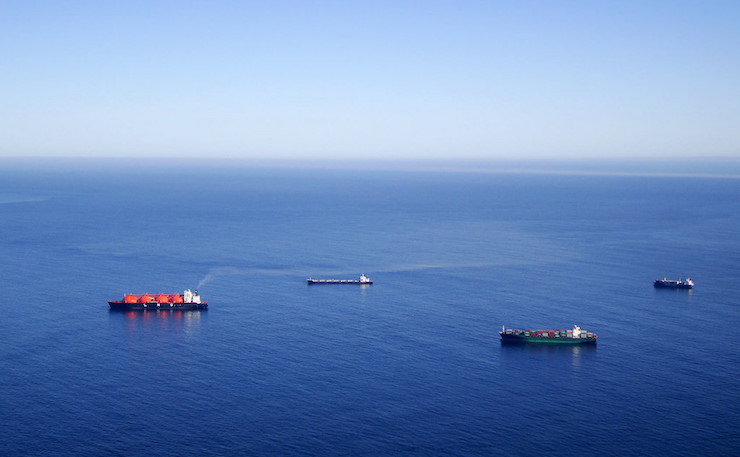Growing the size of an economy and improving the well-being of the people who live in it are not the same thing. Despite their rhetoric, the Coalition’s own budget admits it, writes Ian McAuley.
On the morning after the budget Prime Minister Turnbull was trying to put some flesh on the Coalition’s “Jobs & Growth” slogan. On ABC radio he said:
“… all of our measures, the ones in the budget and the ones we announced beforehand … are designed to ensure continued strong economic growth, and everybody benefits from that.”
It’s a fair bet that if I put Turnbull’s statement to a representative sample of politicians in the main parties, of drinkers in the Rooty Hill RSL, or of academics and students at our universities, there would be strong agreement that economic growth is a good outcome. It’s a political act of faith that a higher GDP is better than a lower GDP, and that there is no greater economic calamity than a “recession”, defined as two successive quarters of negative GDP growth. (Economists baulk at words like “decline” and “shrinkage”.)
As a broad indicator of a nation’s prosperity GDP does a tolerable job (though it says nothing about how that prosperity is shared).
It’s easy to forget its limitations, however.
GDP is a measure of monetised transactions in an economy. That is stuff we pay for in private markets (bottles of Grange Hermitage, car repairs, tickets to football games) and stuff governments purchase on our behalf (health care, the ABC, submarines). It also includes stuff foreigners buy from us (iron ore, flights on Qantas), offset by stuff we buy from foreigners (BMWs, books from Amazon.)
That means it excludes activities where there is no money exchange, most notably unpaid work, such as bringing up children and voluntary activity in the community. It doesn’t allow for a deduction for costs that are not recorded in commercial transactions, most notably costs of pollution (particularly the cost of greenhouse gases to climate change). Similarly, it does not capture the cost of depletion of non-renewable resources.
That all means there can be weird distortions in GDP as an indicator of well-being. If I have a serious car accident that lands me in hospital for a month, there’s a big boost to GDP – the cost of hospitalisation and of replacing my car (even if it’s imported, the distributor’s profit is still a contribution). Similarly, a natural disaster can set off a huge boost to GDP.
Because GDP is a measure of monetised activity it aligns more closely with business interests than with our more general ideas of what constitutes prosperity. My life is more prosperous if I don’t have the trauma of a car accident, and if my house isn’t destroyed in a bushfire, but such misfortunes can be a godsend to the corporate sector.
These are the textbook examples of GDP’s limitations. We can find a concrete and significant example in a one page insert on Page 2-22, Statement 2, of this year’s Budget Paper 1 (or Box 3 on this hyperlink in the HTML version). There it explains the wonders of Australia’s increasing liquefied natural gas production, pointing out that we are poised to become “one of the world’s largest exporters of LNG in the next five years”. In spite of low prices, that big rise in production for the export market will significantly boost our GDP.
But, as the insert points out, we shouldn’t get too excited about its benefits. Because the industry is highly capital intensive it doesn’t employ many people (it simply needs someone to turn the tap on when a ship comes in and to turn it off when it departs). Because of high foreign ownership, much of the profit will go overseas. And thanks to low prices and generous depreciation provisions, we won’t be getting much tax revenue for quite a few years.
I could go on to suggest that even in this industry’s $200 million construction phase, we lost some of the employment benefits, because many of those workers would have been foreigners on 457 visas.
By now, I suspect, some unfortunate public servant in Treasury is in serious trouble for having dared to detract from budget papers’ smooth flow of partisan propaganda with that page of economic reality. But that brave public servant is in sound economic company, and he or she can cite in defence an article “How to measure prosperity: GDP is a bad gauge of material well-being” in last week’s Economist.
In the election campaign there will be claims from both main parties about how their policies will contribute to economic growth. The Greens are a little more circumspect.
In evaluating these claims we should remember that whatever the gross economic indicators may show, economic activity that does not contribute to human well-being is pointless.
Donate To New Matilda
New Matilda is a small, independent media outlet. We survive through reader contributions, and never losing a lawsuit. If you got something from this article, giving something back helps us to continue speaking truth to power. Every little bit counts.





